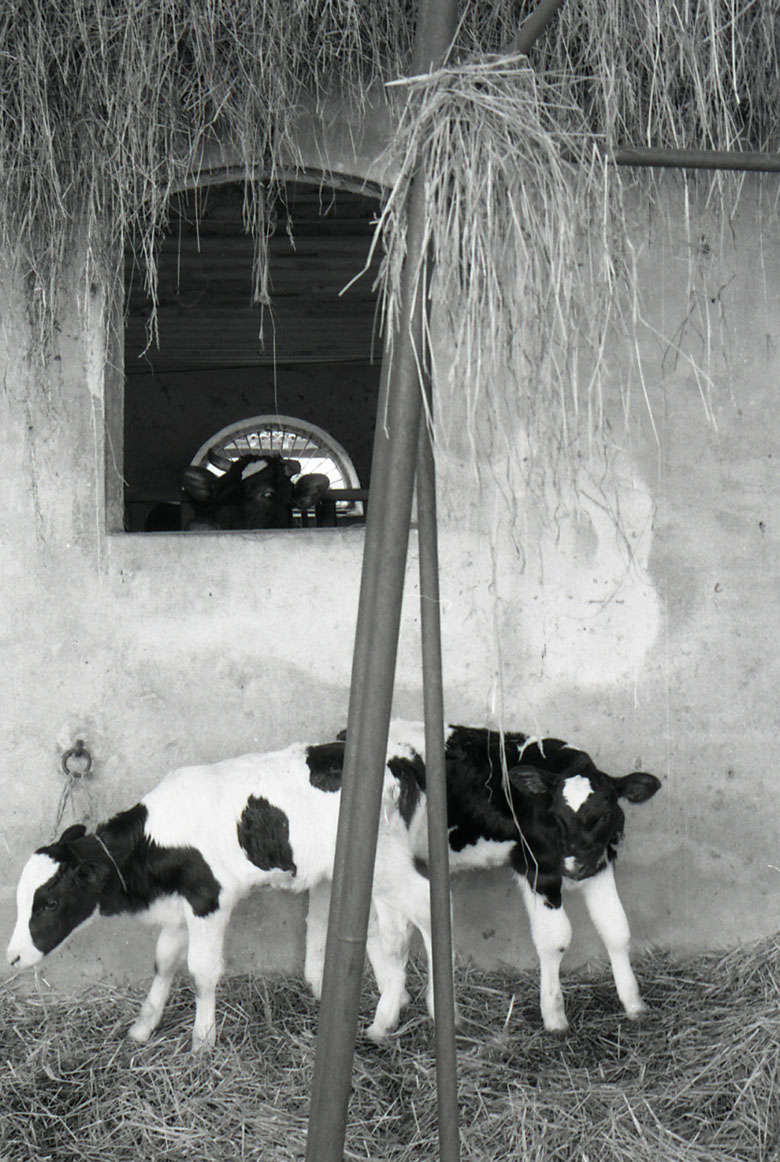World hunger, therefore factory farm

I’ve herd the argument “there are x billion people in the world, people are staving, without factory farming we couldn’t survive!”.
This is an interesting argument, one I can’t give a straight answer to, only speculation. But my thoughts on world hunger is it’s more an issue of wealth distribution issue, not food distribution. Take America as an example and if nutrition could be measured only in calories. America, the wealthiest country in the world, produces yearly over twice the required calories to feed its population… yet there are still people going hungry suffering from malnutrition. This to me is the simplest illustration that it’s an economic game, not one of food production. If America was struggling to produce the yearly calories for their population, I could accept factory farming as a possible solution. But while food goes to those who pay the most it is not a reasonable justification.
What I find interesting is hearing accounts of factory farmers in Germany (the biggest pork producer in Europe) where the farmers are actually dissatisfied with the market conditions (which I suspect is similar for most first world factory farmers). After the cost of buying in feed, antibiotics and labour the profit margin is around 10 euro per piece. Its almost unsustainable economically for them, let a lone the enormous set up cost and the excluded environmental costs. A small scale farm could earn up to 200 profit per piece. The small scale farmer gets to cash in on a lot of trendy labels local, free frange, organic-ish. The large scale factory farm has a lot of hidden costs.
The market conditions are dictated by major fast food outlets and super markets who what to offer their customers best bang for buck. This is further extrapolated by wealth inequality which creates a demand for cheap produce. Which oddly enough benefits those profiting from modern agriculture, those supplying antibiotics, hormone enhancements, pesticides or genetic modifications (looking at you Monsanto & Bayer Corp).
To digress a little I herd an interesting argument on Freakenomics for paper coffee cups. Where by using paper the consumer creates a demand for paper. This creates a demand for forestry, which re-purposes land that would otherwise be used for other commercial use to forestry. Putting more trees on the earth. As long as its managed forest not virgin forest it becomes more environmentally friendly to use paper than avoid it. I like to tell myself this is the same with meat. Where choosing to eat meat ethically, from small scale farms, that abide by your personal standards of animal welfare, would boost the number of “happy” animals on the planet. Giving into the argument that farming must be done this way, I feel is a weak excuse, used to ignore an issue. The same path of reasoning could be used to ignore sexisim or racism. “They were born this way so this is the way it is”. While this statment is technically correct it ignores the social injustice imposed by society.
Factory farms are a requirement to fulfill low costs to low cost products. They are not a requirement to feed the planet or help economic equality. I have been told that by avoiding this meat “you can’t change the world”, but F* me if I don’t dam well try! And shame on you for giving up.
